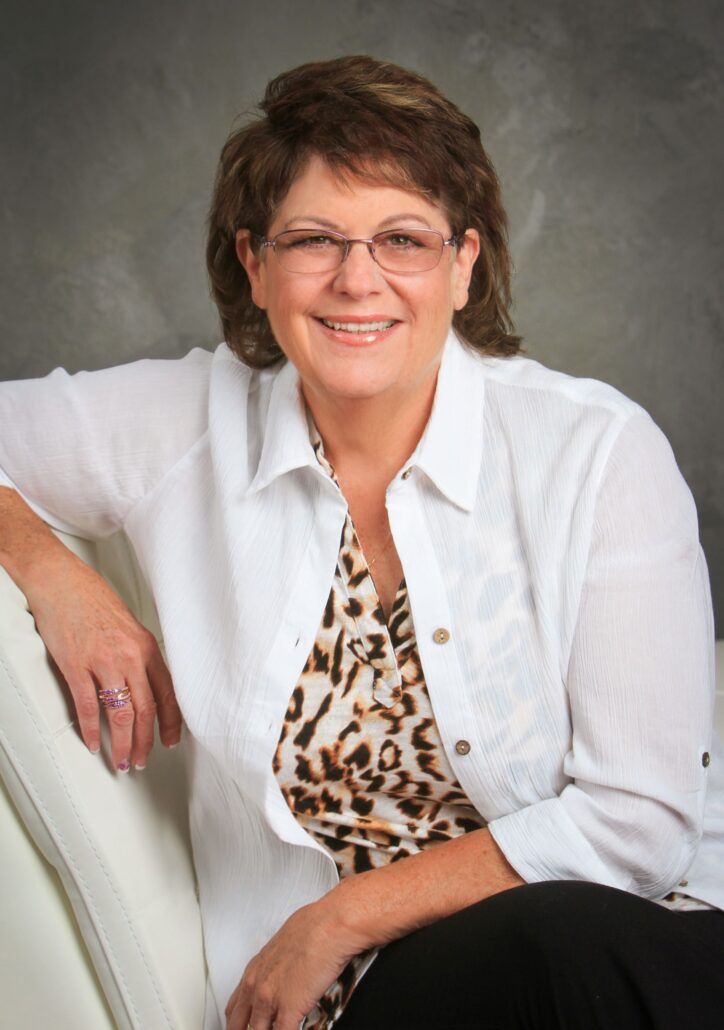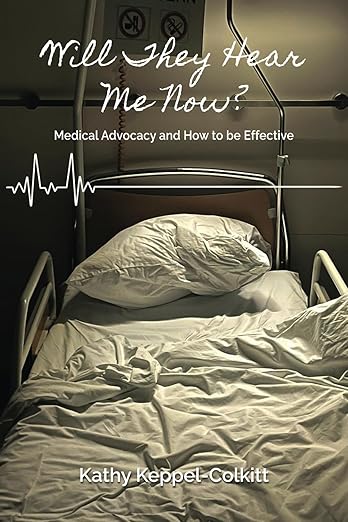‘Will they hear me now?’ uses a local mother’s loss to teach medical advocacy
News Story by Nina Culver | FāVS News
A local mother has written a book about medical advocacy following her daughter’s abrupt death from Hodgkin’s lymphoma after months of being misdiagnosed.
The title, “Will They Hear Me Now?’ is based on something her daughter Brandi said after having her concerns dismissed as anxiety for months, said Kathy Keppel-Colkitt.
“I told her that was a great name for a book she should write,” Keppel-Colkitt said. “She couldn’t write it. A week after she passed, I started writing her book.”
There will be a book launch party from noon to 3 p.m. Saturday at the downtown Spokane Public Library, Event Room A, 906 W. Main Ave. There will be light refreshments.
The book includes details on Brandi’s illness and death, which Keppel-Colkitt said started with extreme pain on Oct. 4, 2008. It’s a date that will forever be etched in her memory.
“It was a significant day,” she said. “It was extreme pain. We took her to the emergency room. She had shooting pain in her eyes. It took her to the floor. It took her to her knees.”
Doctors said the 26-year-likely had a migraine and sent her home.
“The first four months she probably went to the emergency room every five to seven days,” her mother said. “The ER kept saying she was med seeking. One week she went to the ER three times.”
She was referred to a pain clinic and some doctors thought she had Trigeminal neuralgia, a chronic pain disorder that involves pain in the face from the trigeminal nerve, but other doctors disagreed.
Advocating for more tests
In all of her trips to the ER the only tests done were an MRI and a spinal tap, Keppel-Colkitt said. Finally, she’d had enough.
“I called the insurance company and demanded they call the ER and tell them to do some diagnostic tests,” she said.
A CT was ordered and it showed tumors from Hodgkins lymphoma.
“She had two tumors,” she said. “She had a mass on her aorta and heart and one on the back of her neck,” she said.
Brandi was in stage 2B and was told that there was a 95% cure rate. Eight rounds of chemotherapy were ordered and as Brandi progressed through her treatment, she often told her doctors that she was having trouble breathing. Her concerns were dismissed.
“We heard ‘You’re anxious, take more Ativan’ so many times,” her mother said.
After her eighth treatment, Brandi stopped breathing. After she was revived, she turned to her mother and said “Do you think they’ll hear me now?”
A new doctor Brandi hadn’t seen before diagnosed her with bleomycin toxicity. Bleomycin is a standard ingredient in cancer treatment cocktails and Brandi was allergic to it.
If the drug had been stopped when Brandi first began to complain that she was having trouble breathing, she might have recovered, Keppel-Colkitt said. But it wasn’t stopped, so she developed pulmonary fibrosis and her lungs had become choked by fibroids.
“Your lungs become like concrete,” her mother said. “It’s always fatal.”
Brandi was intubated, but it was too late. She died on June 18, 2009.
Teaching others how to advocate for medical care
Keppel-Colkitt not only wanted to tell her daughter’s story, she wanted to teach other people how to advocate for themselves and others. It can be a challenge for family members to be at the hospital while also trying to go to work and keep the family functioning, she said. Keppel-Colkitt said she wants to teach people what to do and say to someone in that situation.
“People don’t know what to do and they don’t know what to say,” she said. “A lot of times people are asked ‘Do you need something?’ and they say no.”
In her book, Keppel-Colkitt recommends being specific when offering to help. People can ask what bills a family needs help paying or if they would like chicken or beef in the dinner you will bring over that night. Ask if the children need to be picked up from school or the dog needs to be walked.
If a question is specific rather than a vague “Let me know if you need anything,” people are more likely to accept help, she said.
“If we are not here to help friends and family, then why are we here?” she said.
People can also volunteer to serve as a liaison by researching issues and helping coordinate care for everyone in the family.
“There are no paid advocates and liaisons,” Keppel-Colkitt said. “Right now it’s an unpaid, thankless job. It’s just doing it because it’s the right thing.”
The book also includes a section where various resources are listed and a place to take notes. “It’s really meant to be a workbook,” she said.
“Will They Hear Me Now?” is available for purchase through Amazon.














Chilling. I, too, learned that I MUST medically advocate for myself and my loved ones.